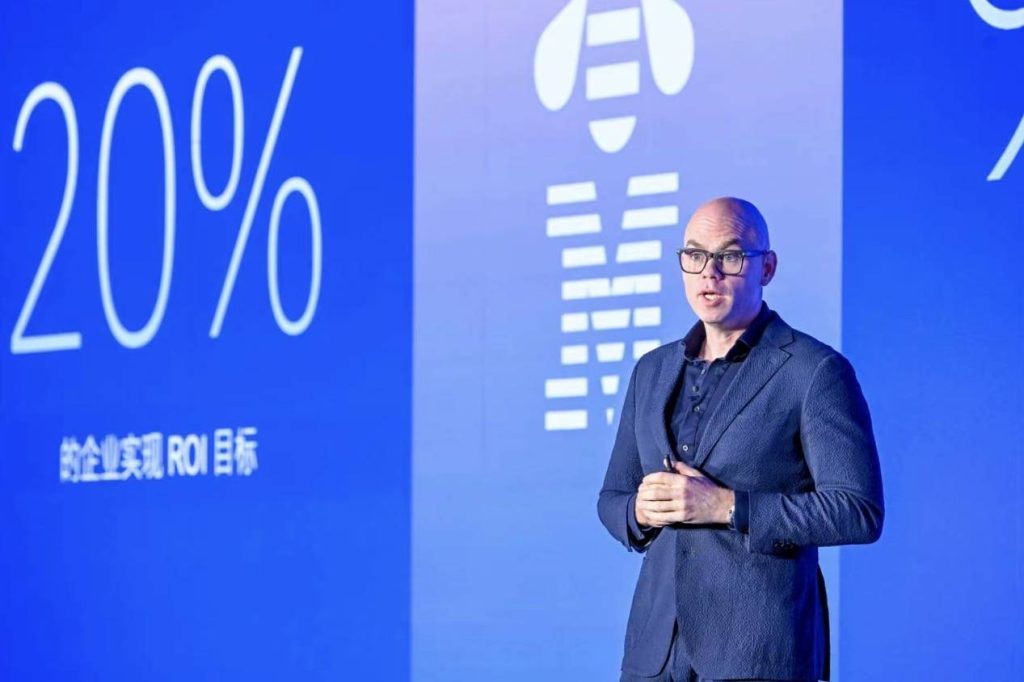IBM stated that in the future, it will help Chinese enterprises seize the opportunities brought by hybrid cloud and artificial intelligence technologies.
“Chinese enterprises are at the forefront of accelerating the large-scale application of AI,” said Hans Dekkers, IBM’s General Manager for the Asia-Pacific region, at the IBM Enterprise AI Summit held on September 5. He emphasized that in today’s rapidly changing technological landscape, AI has become the ‘engine’ of enterprise productivity, and IBM’s strategic focus in the Chinese market has shifted accordingly.
IBM has been serving the Chinese market for over 40 years, but in recent years, as market changes have accelerated, IBM has adjusted its operational strategy in China, shifting from a past focus on hardware and infrastructure services to providing data integration and AI-driven services.
“China is no longer just an important infrastructure market; it is also a market driven by data and AI innovation,” Dekkers said in an exclusive interview with Yicai. Despite the rapid development of AI, only 1% of enterprise data, considered the ‘key fuel,’ is fully utilized. Enterprises need a flexible and seamlessly integrated hybrid cloud architecture, along with efficient and customized AI and automation tools, to maximize the value of enterprise-level AI.
Dekkers emphasized that the Asia-Pacific market, including China, is one of IBM’s four key global markets, possessing enormous growth potential. “By providing open platform and open-source technology enterprise solutions, IBM will continue to deepen its engagement in the Chinese market, becoming a bridge for technology development between China and the West, helping Chinese enterprises access global markets while complying with local regulations,” he told Yicai.
Dekkers also mentioned that IBM’s customer base in China has gradually shifted from the financial sector to private enterprises, a significant portion of which are manufacturing companies.
To this end, IBM is increasing its investment in the Chinese regional market. During this visit to China, Dekkers conducted in-depth visits to cities such as Chongqing, Yantai, and Shanghai.
“The scale efficiency and development speed of China’s manufacturing industry are astonishing,” he told Yicai. “Manufacturing is also one of IBM’s most important growth areas in China, especially in intelligent manufacturing, data integration, and AI applications.”
Regarding the development potential of the Chinese manufacturing market, Dekkers stated that China’s manufacturing industry has moved from the equipment interconnection and data integration stage to the data-driven AI development stage. He also mentioned the strong demand for Chinese manufacturing companies to ‘go global,’ which will provide new business opportunities for IBM.
During the Enterprise AI Summit, Chen Xudong, Chairman and General Manager of IBM Greater China, officially announced IBM China’s ‘Deepening AI’ plan, stating that the next step will focus more on regional markets and ecosystem building, particularly concerning the digital transformation and global expansion of private manufacturing enterprises.
In this development process, an increasing number of enterprises are developing AI agents. To this end, IBM has launched a platform for integrating AI agents from different vendors, enabling horizontal collaboration across enterprises. IBM predicts that by 2028, 15% of daily business decisions will be automatically generated by AI agents.
Hou Miao, General Manager of IBM’s Greater China Technology Division and General Manager of IBM China, stated, “AI agents will be a very large field, and many enterprises are very interested. How to implement AI agents to create real value for enterprises is IBM’s focus.”返回搜狐,查看更多

